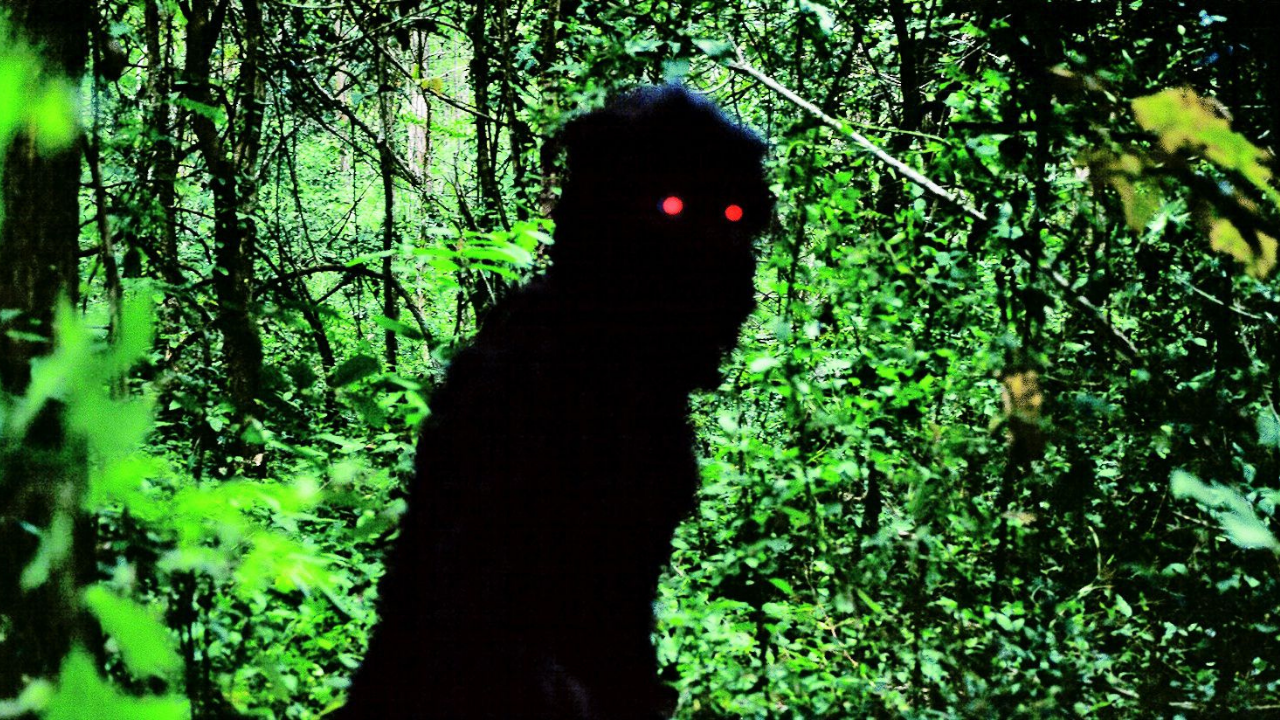
Uncle Boonmee Who Can Recall His Past Lives
Thursday, December 16, 2021
“The acme of no-budget, Buddhist-animist, faux-naïve, avant-pop magic neorealism, Apichatpong Weerasethakul’s Uncle Boonmee Who Can Recall His Past Lives is a movie in which conversing with the materialized spirits of the dead and watching the so-called living on TV exist on the same astral plane.
As marvelously eccentric as it is modest, Weerasethakul’s sixth feature (winner of the Palme d’Or last year at Cannes) is, like many of his previous movies, set mainly in the forests of remote, poor, northeast Thailand, a place where multiple times co-exist and parallel lives converge. The pre-credit sequence of humans and water buffaloes hunkered down by smoky fire in the woodsy dawn could be a scene out of Pather Panchali, until a glimpse of a humanoid “monkey ghost,” red eyes glowing like coals, signals that we have entered the filmmaker’s primeval realm. The unblinking creatures are borrowed from the cheap horror flicks of Weerasethakul’s youth; the untethered buffalo could be an earlier incarnation of his protagonist, Uncle Boonmee (Thanapat Saisaymar).
Elderly Aunt Jen and her young nephew, Tong, both played by Weerasethakul regulars, enter this enchanted forest, having driven up from the city to visit Boonmee, Jen’s brother-in-law, who, dying of kidney failure, has relocated to an isolated jungle house. (Faint strains of John Coltrane’s “My Favorite Things” are heard inside.) Boonmee explains that “spirits and hungry animals” can sense his sickness and, sure enough, mid–evening meal, the ghost of Boonmee’s long-dead wife, Huay, materializes at the table. Shortly after, another red-eyed monkey ghost, who is the manifestation of their long-lost son, Boonsang, appears out of the jungle—a constant presence that, thanks to the ongoing chorus of birds and crickets, is more soothingly pastoral than scary.
No one is particularly surprised by the apparitions, least of all Boonmee. (Ghosts are attached to people, not places, Huay explains.) As a former photographer, Boonmee is used to trafficking in the spirit world. Weerasethakul is similarly relaxed and tolerant of ambiguity. Influenced by the Warhol movies he may have seen (or only heard about at the Art Institute of Chicago)—as well as Thai notions regarding the transmigration of souls that he may no longer actually believe—the filmmaker has a taste for distanced camera positions, real-time expositions, deadpan humor, and blatant non sequiturs. Before Huay can guide her husband toward death, Weerasethakul provides a delightfully inexplicable digression, perhaps involving one of Boonmee’s past incarnations. A great lady carried through the jungle stops by a waterfall to admire her reflection, which, thanks to a spell cast by the Lord of the Water (a large catfish), has suddenly grown youthful. Intoxicated by this illusion, she wades into the pool, dropping her jewels as offerings, as the concupiscent fish thrashes between her legs.
Boonmee possibly passes by the same pool on his nocturnal voyage to the underworld, following Huay through the bush—Aunt Jen, Tong, and the camera trailing behind—into a grotto of sparkling rocks and reflective puddles. “This cave is like a womb,” he observes. Laser-red eyes illuminate the darkness, and the next morning, Boonmee is gone. Cut to a cheerfully garish Buddhist funeral, with Aunt Jen in attendance, and Tong, who played a monk in Syndromes and a Century, unexpectedly among the saffron-robed devouts. Tong briefly thereafter occupies center stage as the narrative gently twists around itself. He wakes up in the jungle, glances at his cell phone, and goes back to sleep, only to turn up at the motel room where Aunt Jen and her daughter (another Weerasethakul veteran) are counting the funeral money. He asks to take a shower and does so while the women idly watch soldiers on TV, then projects his ectoplasmic form to a local karaoke bar.
Ending with one last, playful paradox, Uncle Boonmee seems the fullest expression yet of Weerasethakul’s singular sensibility. A work of unostentatious beauty and uncloying sweetness, at once sophisticated and artless, mysterious and matter-of-fact, cosmic and humble, it asks only a measure of Boonmeevian acceptance: The movie doesn’t mean anything—it simply is.” – J. Hoberman, Village Voice
Part of the series: “In Here, Time Stops: The Films of Apichatpong Weerasethakul”
- Country Thailand
- Language In Thai with English subtitles
- Year 2010
- Running Time 113 minutes
- Director Apichatpong Weerasethakul
- Accessibility Assistive Listening, T-Coil
IFC Center does not generally provide advisories about subject matter or potentially triggering content in films, as sensitivities vary from person to person. In addition to the synopses, trailers and other links on our website, further information about content and age-appropriateness for specific films can be found on Common Sense Media, IMDb and DoesTheDogDie.com as well as through general internet searches.